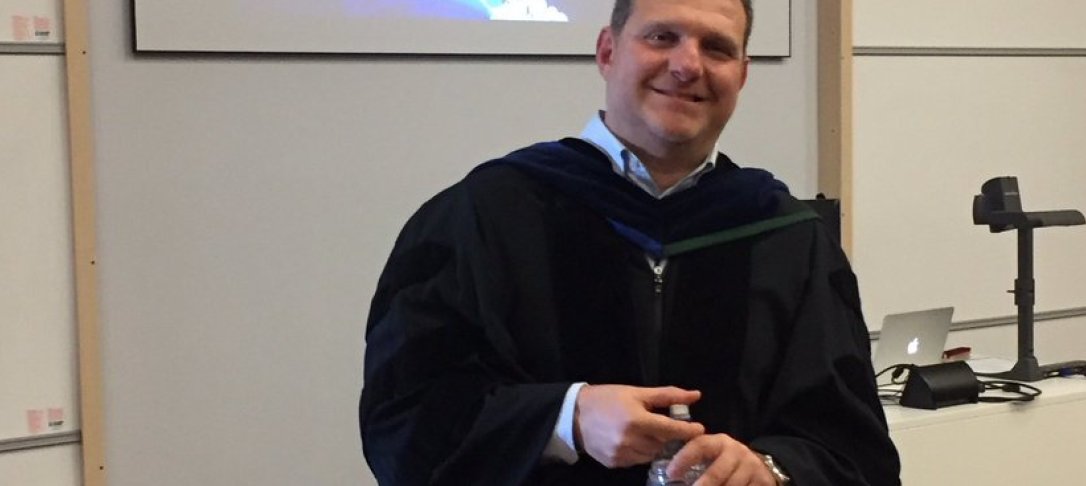
Integrated Systems Approach for Optimizing the Sustainable Bioproduction of Biofuels and Added-Value Chemicals:
The Microalgal Biorefinery Paradigm
Abstract
Due to the constantly increasing global energy demand, the need to produce not only sustainable alternative fuels but also added-value chemicals and energy from renewable sources is becoming more crucial. In this sense the emergence of bio-based technologies has become an attractive and potentially environmentally friendly option, with particular emphasis on the concept of integrated biorefineries, where biomass is converted to fuels, energy and chemicals, thus appropriately valorizing all possible process streams.
The cultivation of microalgae is part of a wider context of bio-refinery exploitation due to their capability to produce high-value molecules, biofuels, fertilizers, antioxidants, anti-inflammatory, and antimicrobials making them potentially exploitable in a biorefinery context. Microalgal biomass is regarded as a long-term and fast-growing promising feedstock capable of meeting global biofuel demands due to its ability to accumulate carbohydrates and lipids, carbon-based molecules from which both sugar- and oil-based fuels can be obtained. Starch and lipid accumulation is known to be significantly enhanced during nutrient-stress algal cultivation, but the associated drop in biomass growth complicates the implementation of such a strategy for large-scale biofuel production [1]. Thus, it is essential to identify optimal nutrient-based strategies capable of balancing the trade-off between algal growth and starch/lipid formation [2].
In order to investigate the best microalgae-to-products routes, we have developed an integrated systems approach combining the construction of multi-scale multi-parameter microalgal cultivation models with state-of-the-art experiments at a range of scales, from the laboratory to the pilot scale. Such a model-based approach enables the prediction of the simultaneous dynamics of biomass growth at different models of operation (autotrophic, mixotrophic or heterotrophic), the formation of starch and lipids and the consumption of essential nutrients [3]. In addition, we have developed detailed population balance models to predict the molecular-level production of important pigments, such as carotenoids, as a function of nutrient availability [4]. This suite of tools allows the implementation of model-based optimization strategies yielding novel operation modes and significant improvements in product yields and formation rates, as well as the holistic assessment of complete microalgal value chains.
References
[1] Bekirogullari, M., Fragkopoulos, I.S., Pittman, J.K., Theodoropoulos, C., 2017. Production of lipid-based fuels and chemicals from microalgae: An integrated experimental and model-based optimization study. Algal Res. 23, 78–87.
[2] Figueroa-Torres, G.M. Wan M Asyraf Wan Mahmood, Pittman J.K., Theodoropoulos, C., 2020.Microalgal biomass as a biorefinery platform for biobutanol and biodiesel production. Biochemical Engineering Journal. 153, 107396
[3] Figueroa-Torres, G.M., Pittman, J.K., Theodoropoulos, C., 2017. Kinetic modelling of starch and lipid formation during mixotrophic, nutrient-limited microalgal growth. Bioresour. Technol. 241, 868–878.
[4] Usai, A., Pittman, J. & Theodoropoulos, C., 2019. A multiscale model approach for cell growth for lipids and pigments production by Haematococcus pluvialis under different environmental conditions. Computer Aided Chemical Eng. 46, 1573-1578.
Biography
Constantinos (Kostas) Theodoropoulos received his BSc in Mathematics from the Aristotle University of Thessaloniki in Greece and his MSc and PhD (1999) in Chemical Engineering from the State university of New York at Buffalo, USA. He then worked as a post-doctoral associate in the Department of Chemical Engineering at Princeton University for 2 years. He is currently Professor of Chemical and Biochemical Systems Engineering, in the School of Chemical Engineering and Analytical Science (SCEAS). He is the Director of Postgraduate Research for SCEAS. He has organised and taught Continuing Professional Development courses to industrial delegates, intensive post-graduate course programmes to Universities around the world as well as in-house training workshops for the Industrial Sector. He has over 100 publications including articles in scientific journals, and in conference proceedings as well as book contributions. He has given a number of invited seminars all over the world. He has served as member of editorial boards and of international scientific committees and also as session chair for a number of International Conferences and Workshops.
His research group focuses on the multi-scale modelling of complex chemical and biochemical systems and processes, with a particular interest in integrated biorefineries for the co-production of fuels and chemicals, microreactors and electrochemical systems such as fuel cells. The development of novel computational methods and model reduction techniques for bridging the gap between different time- and length-scales in order to enhance the simulation, design, optimisation and control capabilities for complex large-scale reaction-transport processes and for microscopic systems is another important research direction providing a suite of enabling technologies to deal wth the above systems of interest. His work has been funded by EPSRC, BBSRC, INNOVATEUK, the European Union (FP5. FP6, FP7), the Royal Society, the National Science Foundation USA, the Air Force Office for Scientific Research USA, Sandia National Laboratories and United Technologies Research Center.
How to log on
You are invited to a Zoom webinar.
When: 12 May 2021 at 13:00 PM London
Topic: Sargent Centre Seminar: Professor Constantinos Theodoropoulos, University of Manchester
Please click the link below to join the webinar:
https://zoom.us/j/94961313132?pwd=bDBZTWs3TCt4bFhUMGcrZEJNRFRUUT09
Passcode: SPn6w4
Or One tap mobile :
US: +12532158782,,94961313132#,,,,*150703# or +13017158592,,94961313132#,,,,*150703#
Or Telephone:
Dial(for higher quality, dial a number based on your current location):
US: +1 253 215 8782 or +1 301 715 8592 or +1 312 626 6799 or +1 346 248 7799 or +1 669 900 6833 or +1 929 205 6099
Webinar ID: 949 6131 3132
Passcode: 150703
International numbers available: https://zoom.us/u/aescUZHGG8


